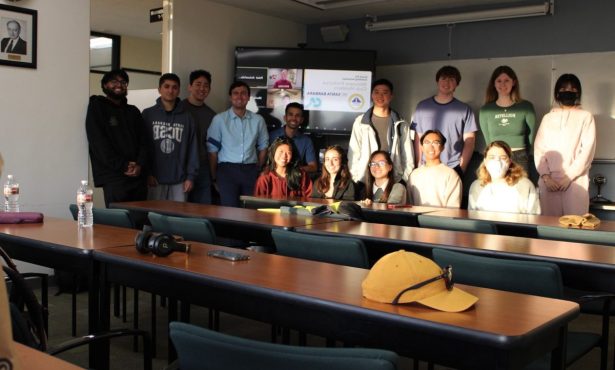Colleges Want to Hear About Your Experience with COVID-19 Application
The Common App Has a Special, Separate Section for 'Community Disruptions'

We’re all still trying to figure out how to deal with COVID-19. From my vantage point in the world of college admissions, I’ve watched energetic teens galvanize the support of friends and classmates to deliver groceries to the vulnerable, and I’ve watched others create or participate in peer-to-peer virtual tutoring programs, online mentorship programs, and more.
It’s been a remarkable mobilization among young people — not only to help those most vulnerable to the ravages of the coronavirus, but also to help each other.
Since the pandemic began, we’ve also watched people from all over Santa Barbara work to help our community get through these difficult times, including massive efforts like that of the Santa Barbara Foundation’s COVID-19 Joint Response Effort, which has raised more than $17 million to support individuals and nonprofits in Santa Barbara.
Get the top stories in your inbox by signing up for our daily newsletter, Indy Today.

That’s not to say intense personal struggles haven’t happened. I’ve seen teens suffer from the economic hardship resulting from job-loss and reduced work hours, and I’ve comforted others consumed by fear after a parent or grandparent was diagnosed with COVID-19.
Mostly, however, I’ve witnessed the sheer emotional exhaustion that has emerged from the grueling new reality of high school, which now entails endless hours in front of a screen coupled with a frustrating isolation from friends and classmates. Students face the usual struggle to stay on top of schoolwork without any of the social benefits of a normal day at school.
For seniors, of course, there is also the stress of college application season, which has been complicated by an understandable confusion about how this strange new reality should be addressed on their application, if at all. Everyone is dealing with COVID-19, they tell me. Do colleges really care about how it has impacted them specifically?
If there is one compensating factor to this perplexing new reality, it is that colleges do care about how their applicants have been affected by the pandemic, and most are eager to take these experiences into account during the admissions process.
In fact, I would argue that how some students report their COVID-19 experience is one of the most important parts of the application, because it will provide crucial context that would otherwise be lacking. Colleges want a comprehensive picture of each applicant, and that includes how they’ve been affected by the pandemic.
With all of this in mind, here is how you should address COVID-19 on your college application.
If you’re applying through the Common App, do not write your main personal statement about your experiences with COVID-19. The personal statement is a valuable opportunity to show admissions officers something meaningful about you that is not readily apparent from the rest of your application, something that cannot be gleaned from your grades, test scores, and extracurricular activities. Don’t use this valuable space for anything else.
In fact, the Common App has reserved a separate section for you to address this very topic. In the Writing section of the application, you’ll find a question that begins:
Community disruptions such as COVID-19 and natural disasters can have deep and long-lasting impacts. If you need it, this space is yours to describe those impacts. Colleges care about the effects on your health and well-being, safety, family circumstances, future plans, and education, including access to reliable technology and quiet study spaces. Do you wish to share anything on this topic?
If you select “yes” here, a box will pop up with space for a 250-word response. Use this to explain, as concisely as possible, how your academic performance has been affected by COVID-19. This might include loss of income, a sudden increase in family responsibilities (e.g., having to care for younger siblings while parents work), or simply a decline in academic performance due to the challenges of remote learning.
If you and your family weren’t impacted by the pandemic beyond the inconvenience of distance learning, and you adjusted to this change reasonably well, and your grades didn’t suffer, don’t feel the need to force a response here.
For more information on this question, the best advice I’ve read is from the blog of Jeff Schiffman, Tulane’s Director of Admission.
Finally, and most importantly, don’t forget to rely on your school counselors to help explain your situation. They are your closest allies, and are also in a position to be your most forceful advocates. If they are submitting recommendation letters to colleges on your list, be sure they understand your situation so that they can provide additional information about what you and your family have endured these last several months.
Cassie Lancaster is the Executive Director of Mission Scholars, a program of the Santa Barbara Education Foundation.
Every day, the staff of the Santa Barbara Independent works hard to sort out truth from rumor and keep you informed of what’s happening across the entire Santa Barbara community. Now there’s a way to directly enable these efforts. Support the Independent by making a direct contribution or with a subscription to Indy+.




You must be logged in to post a comment.